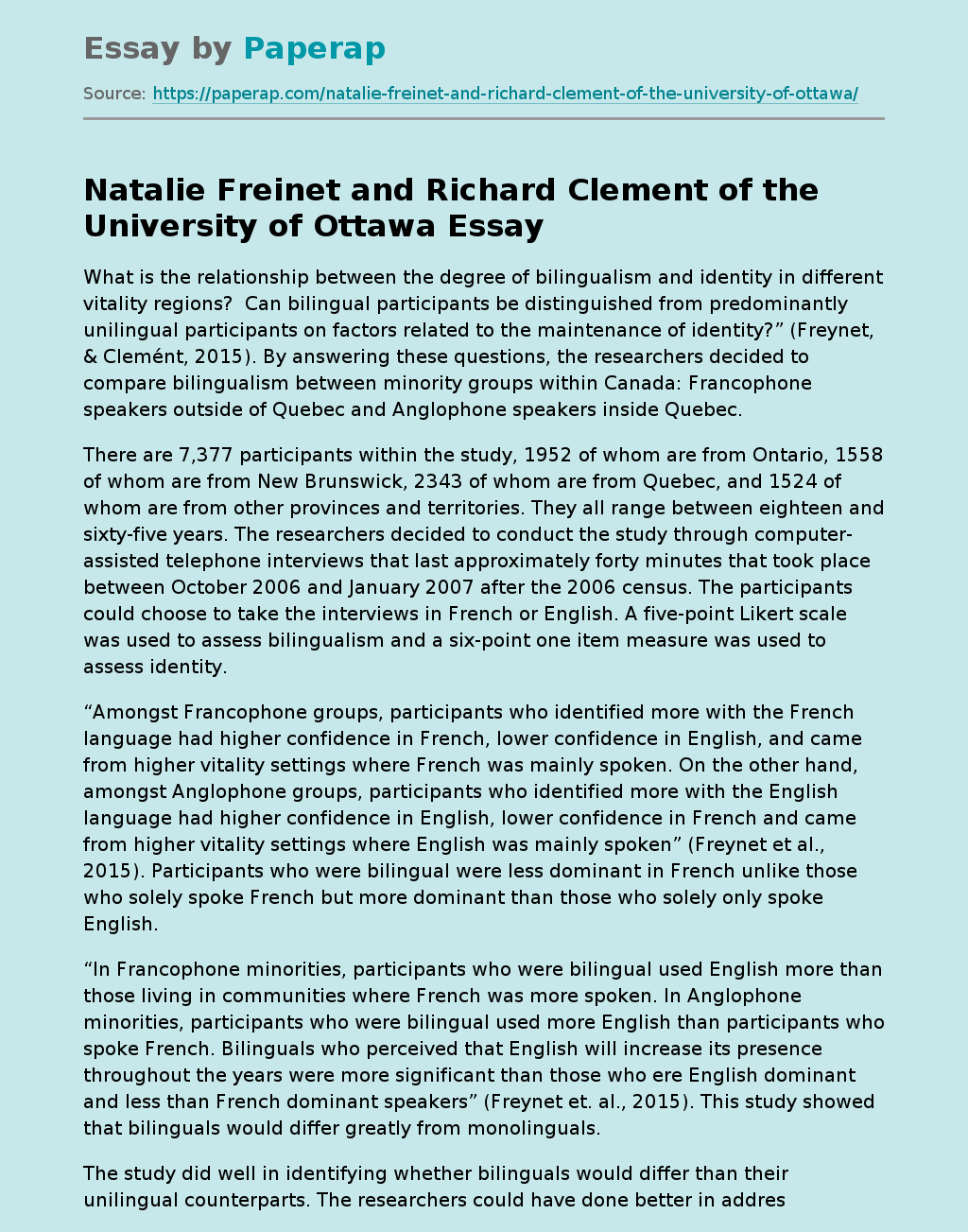Natalie Freinet and Richard Clement of the University of Ottawa
What is the relationship between the degree of bilingualism and identity in different vitality regions? Can bilingual participants be distinguished from predominantly unilingual participants on factors related to the maintenance of identity?” (Freynet, & Clemént, 2015). By answering these questions, the researchers decided to compare bilingualism between minority groups within Canada: Francophone speakers outside of Quebec and Anglophone speakers inside Quebec.
There are 7,377 participants within the study, 1952 of whom are from Ontario, 1558 of whom are from New Brunswick, 2343 of whom are from Quebec, and 1524 of whom are from other provinces and territories.
They all range between eighteen and sixty-five years. The researchers decided to conduct the study through computer-assisted telephone interviews that last approximately forty minutes that took place between October 2006 and January 2007 after the 2006 census. The participants could choose to take the interviews in French or English. A five-point Likert scale was used to assess bilingualism and a six-point one item measure was used to assess identity.
“Amongst Francophone groups, participants who identified more with the French language had higher confidence in French, lower confidence in English, and came from higher vitality settings where French was mainly spoken.
On the other hand, amongst Anglophone groups, participants who identified more with the English language had higher confidence in English, lower confidence in French and came from higher vitality settings where English was mainly spoken” (Freynet et al., 2015). Participants who were bilingual were less dominant in French unlike those who solely spoke French but more dominant than those who solely only spoke English.
“In Francophone minorities, participants who were bilingual used English more than those living in communities where French was more spoken. In Anglophone minorities, participants who were bilingual used more English than participants who spoke French. Bilinguals who perceived that English will increase its presence throughout the years were more significant than those who ere English dominant and less than French dominant speakers” (Freynet et. al., 2015). This study showed that bilinguals would differ greatly from monolinguals.
The study did well in identifying whether bilinguals would differ than their unilingual counterparts. The researchers could have done better in addressing the importance and impact of second language learning in relation to bilingualism and identity, using oral responses as a measure of confidence in identity and using a bi-dimensional approach in their study to give a more broad and valid framework for the understanding of acculturation. Despite what the researchers could have done better, it is interesting that they focused on Anglophone and Francophone minority groups inside and outside Quebec and determine whether a participant felt more identified with either group.
Natalie Freinet and Richard Clement of the University of Ottawa. (2021, Dec 05). Retrieved from https://paperap.com/natalie-freinet-and-richard-clement-of-the-university-of-ottawa/

